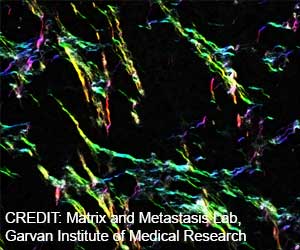
Sweat evaporation plays a crucial role in heat dissipation in humans, primarily regulated by sweat gland activity. Aging leads to decreased sweat gland function, contributing to heat intolerance in the elderly, yet the underlying mechanisms remain unclear. (1✔ ✔Trusted Source
Characterization of age-associated gene expression changes in mouse sweat glands
)
In a recent study, researchers from the National Institute on Aging explored molecular alterations associated with sweat gland aging in mice. Their findings, confirming a notable decline in active sweat glands in older mice compared to younger counterparts, shed light on this physiological process.
Identification of Sweat Gland-Enriched mRNAs
“We first identified SWG-enriched mRNAs by comparing the skin transcriptome of Eda mutant Tabby male mice, which lack SWGs, with that of wild-type control mice by RNA-sequencing analysis.”
This comparison revealed 171 mRNAs enriched in SWGs, including 47 mRNAs encoding ‘core secretory’ proteins such as transcription factors, ion channels, ion transporters, and trans-synaptic signaling proteins. Among these, 28 SWG-enriched mRNAs showed significantly altered abundance in the aged male footpad skin, and 11 of them, including Foxa1, Best2, Chrm3, and Foxc1 mRNAs, were found in the ‘core secretory’ category. Consistent with the changes in mRNA expression levels, immunohistology revealed that higher numbers of secretory cells from old SWGs express the transcription factor FOXC1, the protein product of Foxc1 mRNA.
“In sum, our study identified mRNAs enriched in SWGs, including those that encode core secretory proteins, and altered abundance of these mRNAs and proteins with aging in mouse SWGs.”
Reference:
- Characterization of age-associated gene expression changes in mouse sweat glands – (https://www.aging-us.com/article/205776/text)
Source-Eurekalert



